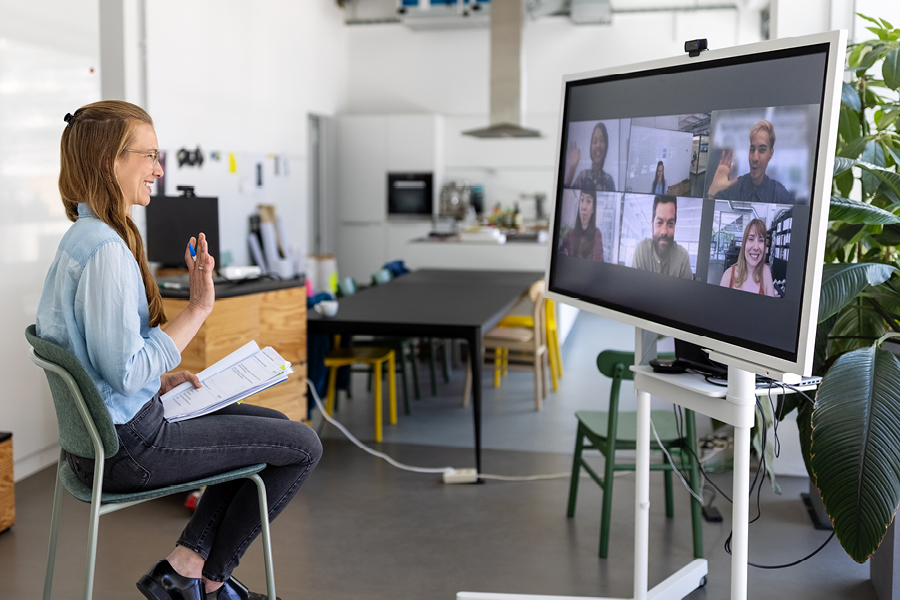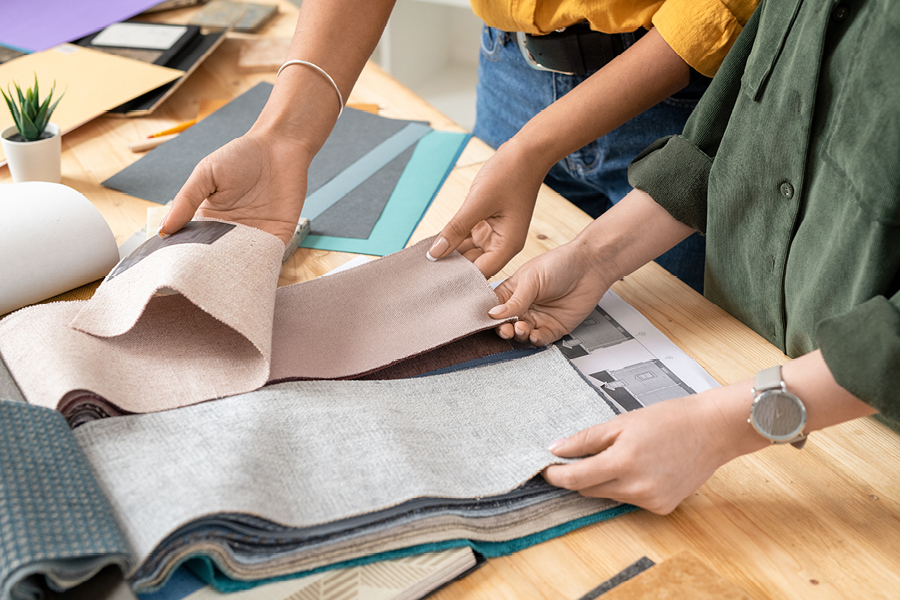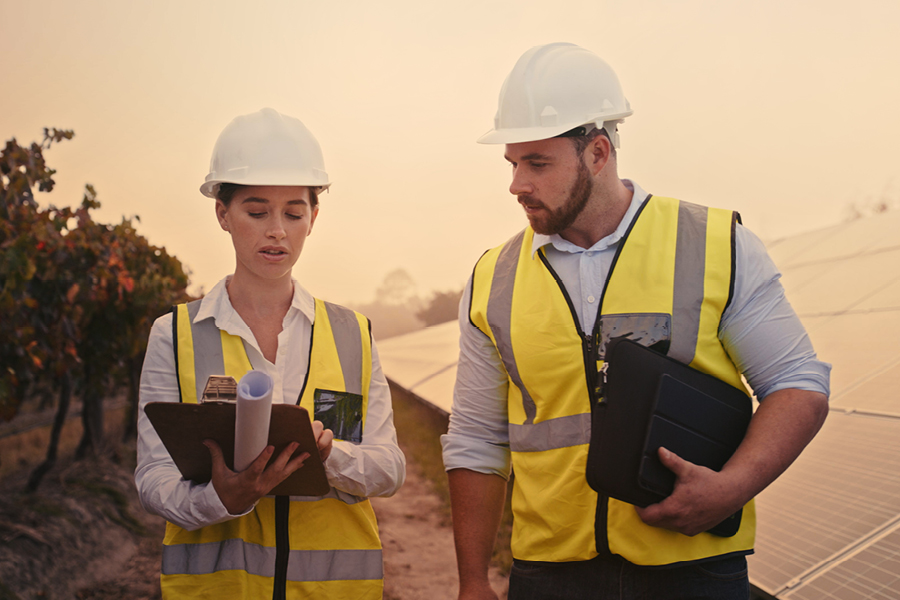If you’re a business owner wondering about the steps you can take to incorporate more sustainable work practices, it’s never been easier to get started. Our governments are shifting towards a circular economy and organisations are popping up everywhere to drive more sustainable business growth.
Customers care more than ever about a company’s sustainable work practices, too, and environmental, social and corporate governance (ESG) credentials, and are voting with their wallets, according to PwC’s Voice of the Consumer Survey.
“Back in the late ’90s, it was a hard sell to convince businesses to consider ESG strategies if the pitch didn’t link to saving money,” says Lara Barclay, founder and director at environmental consultancy Adaptation, and program manager at Recycle Mate. “We were fortunate to work with some innovative early adopters but now it has become much easier to gain early traction as customers and staff expect it. People want to deal with and work with businesses doing the right thing – it impacts everything from reputation to staff and customer retention, amongst many other business benefits.”
As market interest grows for sustainable practices, so do the organisations offering the services and solutions for other business leaders. Peter Solomon, Chief Partnerships Officer at Moorup, says their trade-in programs “stopped 21 tonnes of electronic waste from returning to landfill, reduced CO2 emissions by 5,310 tonnes and saved 68,000 litres of water for each refurbished device purchased, as opposed to purchasing a brand new device”.
Let’s look at the small steps that could have a big impact in your business.
1. Carve out a Sustainable Business Plan

When it comes to setting up a sustainable business plan, Peter recommends tailoring it to your business priorities and long-term plans. “When implementing any sustainability program, the most important aspect is to identify key metrics relevant to your business and then perform ongoing measurement of those metrics,” he says. “This will encourage long-term sustainability thinking, programs and practices and activities such as the reduction of waste or reduction in energy use.”
Lara recommends getting started by considering all aspects of your operations, inputs and outputs – understanding where the greatest impacts are and if there might be any quick wins. “You can’t avoid waste, so look at how you can reduce or divert, as much as possible – what you can avoid, what you can buy better and what you can reuse or recycle? Reach out to your suppliers and business partners. Can they supply products with improved environmental credentials? Do you have any aligned goals? Work across your business to integrate sustainability commitments into your existing systems, into people’s roles and as criteria in your tender documents. Integrate ESG into your DNA so it just becomes how you do business.”
SEE ALSO: More sustainable business practices owners are embracing
2. Assess Big-Ticket Items Like Cars, Tech and Travel

Simply cutting back on some of the big-ticket items can be a simple first step. Consider how often you get a new computer, iPhone or company car. Do you hop on a plane for a business meeting when you could log into Zoom? Everything we do has a net environmental impact, says Lara. “Our larger clients are often shocked by the reduction that can be achieved by just reducing staff flights by as little as five per cent. Decreasing the turnover of company tech or car fleet or cutting unnecessary staff travel are really simple steps – and also good for the bottom line.”
“We have all been guilty in the past of storing old phones, tablets, laptops or other devices in our draws (or worse still disposing of them through standard rubbish collections). For Moorup, our role in the circular economy is to keep electronic devices in use for as long as possible, while addressing the financial cost by offering money for personal devices,” says Peter.
Hot Tip: Have your old phone, laptop, tablet or smartwatch assessed by Officeworks to check its value. If eligible, you’ll receive a digital gift card to spend in store or online. Complete a quick device assessment online to get started. Depending on the condition of your old device, Officeworks will help it go to a new owner or send it to our recycling partner.
3. Consider a Workplace Blend of New and Renewed

Doing a fit-out? It might be challenging for large corporates to opt for renewed or recycled office furniture, but small business owners who kit out their office this way can make significant savings.
Plus, consider your depreciated assets. Look at reupholstering chairs from your office so you don’t have to throw them out. Try to rehome any materials that would otherwise lie dormant in a warehouse or be thrown into a skip bin.
Hot Tip: Find a variety of office supplies and furniture made with recycled, recyclable or sustainably sourced materials in Officeworks’ People & Planet Positive range. The collections aim to reduce our impact on the environment and support local communities through trusted certifications, standards and initiatives.
4. Do Your Due Diligence

Not doing enough research is one mistake Lara sees some companies make when looking to implement more sustainable work practices.
“Some companies might promote a particular sustainability feature, but it’s often not the whole picture,” she explains. “You need to do your due diligence and not just accept that whatever someone is telling you is true. For example, if a business tells you that they’re recycling and you’re getting involved and supporting them, you need to ask. ‘What are they doing with that material?’, ‘Where is it going?’, ‘How is it being processed?’, and if they can’t tell you, you reassess.”
SEE ALSO: More Sustainable Packaging Ideas for Small Business
5. Keep Re-Evaluating and Collaborate With Others

Embracing sustainable work practices isn’t a set-and-forget proposition; it’s something you continually refine over time, says Lara. “Even when our clients feel they are doing the best they can, we encourage a 12-month review cycle (minimum) to reassess if there are new technologies, new initiatives or new products that present new opportunities. The rate of change is so rapid right now with industry and governments continually investing in sustainability initiatives, so it’s about being fluid and continually reassessing your options – and also the drivers as community expectations and regulatory requirements also continue to rise.”
Experts across the board also say it’s important for businesses to collaborate and share which sustainable practices work and which don’t.
Did you know?
Officeworks has partnered with Recycle Mate and Moorup to help businesses incorporate more sustainable work practices in their offices.
Recycle Mate: This handy app is designed to help remove recycling confusion for the community by providing guidance on what to put in home recycling bins and linking to away-from-home recycling options, like Officeworks – its stores are key destinations for recycling electronic products. “We have been thrilled to partner with Officeworks as one of our earliest Recycle Mate supporters. We are now working on exciting new developments to expand Recycle Mate to also become a useful resource for small businesses, schools, shopping centres and other organisations,” says Lara.
Moorup: Moorup is an Australian technology company with a vision to create better end-of-life solutions for smart devices. “Our mission is to extend the lives of electronic devices, helping customers save money, while helping the planet become more sustainable.
We are proud to be B-Corp Certified and carbon neutral, and we’re actively working to reduce the end-of-life impact smart devices have on our planet and our future,” says Peter.
“Specifically for the Officeworks Trade-In program, Moorup incentivises Officeworks’ consumer and business customers to return these old and not-so-old personal devices. We perform an assessment process that makes sure the device functionality works and any data is permanently erased. Moorup then refurbishes these devices and offers them to other individuals and companies.”






